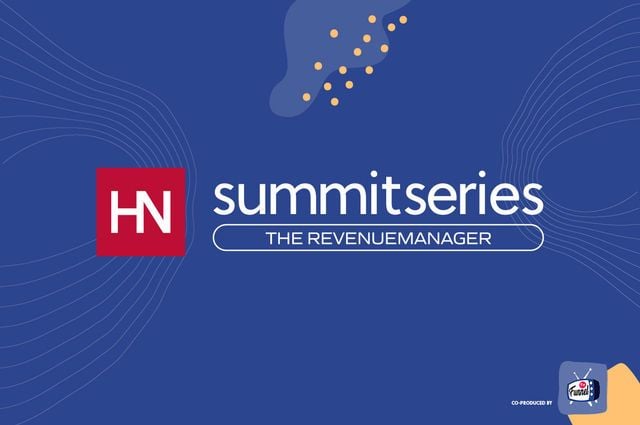What are the best technology solutions for optimizing revenue?
11 experts shared their view
Nothing divides revenue managers more than the discussion around artificial intelligence and machine learning. The two schools of thought fall into the category of technophobics and technophiles, with AI-enthusiasts on one side and Luddites on the other. As usual, in medio stat virtus, so it's time to ask the right questions about the use of AI, ML, BI, blockchain, advanced analytics, etc. in our industry. What, if any, technology(ies) can facilitate the work of revenue managers? And will revenue management as we know it disappear with the rise of AI?
Episode #8 THEREVENUEMANAGER - What's New in The Toolbox
Revenue management has evolved and will always do, but not only because of technology. Surely, it will go toward a more holistic approach (applied not only on rooms but also on the other revenue streams) and will have an increasing focus on profitability and the customer.
As for technology and AI and ML, they cannot be a threat, they are facilitators and help optimizing human time and results. We need to surrender to the fact that they process manual and counting works better than us.
BUT behind all these systems there should always be a strategist, in order to set and use the tool according to a hotel strategy and goals.
AI+HI is the right combination.
So, the figure of revenue manager will not disappear but evolve for sure into a more complex and strategic one, ideally leading all the sales, revenue and marketing processes of the hotel. All these departments should work together in the same direction guided by a strategic mind.
Finally coming to the questions about technologies that can facilitate RM optimization, apart from the very basis (PMS, CM, BE) we come to:
- RMS with AI and ML which also take into consideration the profit
- BI to analyze the market and the customer
- CRM because RM should be customer centric
- CHATBOTS with ML, because they are focused on the customer and useful to sell up and cross
The secret for this tech stack to properly work is INTEGRATION! Therefore, keep this in mind when choosing a new tool. AI, ML and access to big data are bringing another phenomenon: a customer centric approach and a hyper personalization. This will bring soon or later (hospitality never comes first when talking about technology and digitalization) a ABS approach (Attributed Based Selling)….. let's get ready for this huge revolution in the technology
Even before being acquired by the Marriott group, Starwood began implementing dynamic pricing automation, increasing its revenue by 5% in just one year.
According to Don Kelly, VP of Sales, Pricing, Distribution, and Revenue Management at Accor, 80% of the group's revenue growth in North America in the business and leisure sectors was the result of their dynamic rate management with Open Pricer (a machine learning company that provides real-time prices to online sales channels).
Carlson Rezidor Hotel Group and Best Western have been partnering with JDA Travel Price Optimizer for some time, and Carlson expects this partnership to bring incremental revenue of $ 30 million annually.
When data-collecting and interviewing revenue managers and tech vendors for my next book on the future of hospitality, I have not found a single case in which the implementation of some level of machine learning/AI did not correspond to an increase in revenue/profit, so it's quite clear where I stand in the whole technophobic/ technophile diatribe.
At a closer look, the reasons behind the AI dominance over humans in RM, are mainly:
- Higher computational power;
- Exponentially lower investments needed.
AI does nothing more than a human revenue manager does; it simply does it more accurately, faster, and for a much more modest "salary."
Revenue management is, in our industry, the most "logical" (in the Aristotelian sense) discipline, so it should not be surprising that, of all the departments, AI entered revenue managers' offices first. Make no mistake: the same fate will be shared by many other departments in the near future (AI-based web design, AI-fueled advertising, etc.), but it's in revenue management that AI will flourish first. We will have the privilege to witness this historic event.
Over the last 10 years, there have been great advancements on hotel revenue management systems, especially in the areas of price optimization as well as inventory controls. With most major brands and independent hotels on high performing markets adopting customized systems, these applications have proven to be essential for the revenue management in today's world.
Revenue management systems and AI rely on predictive modeling, which produce a desired outcome. However, the recent pandemic has re-emphasized the fact that the human element is still the most vital for our business. Unlike other industries, hospitality still relies on human behavior and human actions and execution, which at times can be unpredictable. Same as ATM machines did not replace bank tellers, I believe our roles in the future would become less task-oriented and more strategic. These tools provide us the information we need to make decisions, however they do not replace the process completely; it simply sets us on a level playing field with our competitors. How can we outsmart our competitors with their same technology? Human ingenuity, combined with great tools and systems, is the key to outperforming in our own markets. I strongly believe in the curiosity and competitive nature of the human spirit, one that, while aided by technology, it is an independent thinker and a leader in its own right.
First of all, I don't think that those that are not "all in" on applications of AI and ML in revenue management should be considered technophobes or Luddites. AI and ML algorithms are in their relative infancy right now. This means that giving full control over pricing to one of these algorithms today would be like asking a kindergartener to run pricing for your hotel. Hoteliers should be cautious, but optimistic, about these techniques in the current moment, as there is no doubt the potential is there for the future. Responsible technologist know that you must first define the problem, before you find the right solution. You do not start with the technique and try to find applications - which is what the conversation seems to be tending towards these days. That said, there is way too much complexity in our environment today to continue to operate the way we have been. Automation using advanced analytics, AI and ML is crucial to automate routine decisions leaving people free to take a broader and more collaborative view, to set strategy, identify new opportunities and manage the market more holistically. Any technology that reduces manual work, cuts through the noise and enables strategic thinking will facilitate the work of revenue managers - and there are plenty of examples from simple conditional formatting to very complex AI and ML. There will always be a role for people, but the role will evolve from a tactical rate manager to a strategic market-focused revenue generator. Technology of all forms will facilitate that - which means every revenue manager needs to educate themselves on the benefits and drawbacks of these more advanced techniques to properly take advantage of them.
Of course Revenue Management "as we know it" will disappear - regardless of AI or not. Its called evolution!
The shift we need is to move towards #humancentricRMS - where not the system sits in the middle but the human itself ! and through feedback loops the human will be optimized - ie the user gets better each time they log in (like we do at Infinito).
Traditional Revenue Systems have always played an interesting game in which users could never win (when they override they were told "don't override", if they don't override they were asked why they didn't if they "knew better" yet same time being told "the system knows better" and have you validated "the algorithm / forecast").
Whilst there will be redundancies through automation, RM will just be evolving and through #humancentricRMS we create more talent and current talent can get better.
What can revenue managers use now: Optimization means doing better - so any tool that helps you get better - RMS, Excel, News article, BI, Rate Shopping - USE IT! And be mindful: An RMS is NOT the holy grail - it is just one more data point a revenue manager needs to include in decision making - just like BI, Rate Shopping, etc. You got this!
Be technophiles or not to be, that is the question?
I think in the XXI speaks about being technophobic is not real, but being honest, probably in our industry, we have a lot of people who are like that , who are technophobics and this is something what is slowing our industry in terms of innovation.
We are in a lot of ways of thinking a traditional industry based on the human contact so the automation , the AI paradigms, blockchain and son on are concepts where we (like an industry) are not comfortable.
Revenue Managers (together with the IT department) are in some way the most sophisticated department in terms of the use of technology because we are surrounded by that, and in some cases like the RMS we use very sophisticated technology, so we need to lead in some cases this path of innovation.
All technology is able to add value to our work if we follow some simple points:
- Easy to use: this is the most important part, we need to have technology that every single user could afford their use
- Do it yourself: Technology needs to be 100% personalized by users
Democratized: Technology needs to lower their price in order to be used by a massive number of properties, there is a lack of use due the cost of the hospitalityAnd will revenue management as we know it disappear with the rise of AI?
Yeah of course ... and the key is the term "as we know" ... in the following 5 years the revenue manager task and duties will change dramatically and turn into a more strategic role eliminating all the repetitive task and some of the basic tactics we face daily.
Revenue Management and Technology shouldn't still be “The great divide” in 2021 but there is no doubt that the industry is still showing different approaches when it comes to the relationship between human and machine in revenue management.
The trust in technology is still lacking in many cases and that's where the gut feeling takes over. Some Hotels are afraid that AI and machine learning might negatively impact the ADR and profit with the system focusing too much on volumes, others are afraid to just leave the system “free” to set recommendations and restrictions (and so they constantly override based on their assumptions), other times there is laziness in event trying to understand the analytics and that's where the old good and familiar excel saves the day…
The point is that there is no such thing like being afraid of technology or worse, considering it a time-consuming activity to manage when we embrace and acknowledge the fact that it is an extension of our human brain: helping where complexity in analytics and calculations would stop us and 24/7 on duty!
As such, a good Revenue Management System is essential and it will never replace humans that need to fuel the system with their knowledge and experience to make it work properly and according to the Hotel's strategy.
Strategy is the keyword, we need to finally become strategic and stop being “technical” (that was the RM of the 90s). Cooperation human-tech is the way to move forward, there is no turning back as the world and the demand are moving and evolving fast: the ones who will adapt in real time by leveraging and trusting technology are the ones that will drive (revenue AND profits) and thrive.
To me, it's not a question of whether technology (and AI/ML in particular) is good or not for the Revenue Management discipline. The question is: why are we, as an industry, so far behind other sectors when it comes to the adoption of automated tools and especially Machine Learning in our decision making process?
We interact with AI everywhere in our daily lives: Facebook shows you targeted ads based on vast amounts of information digested by their ML algorithms, your smartphone uses AI-based face recognition software to unlock, Netflix offers you suggested list of movies to watch using your previous viewing history, Alexa and Google control nearly everything in your house... and yet, we can still count the number of AI-based hospitality tech solutions on the fingers of our 2 hands (and maybe one or two toes of the left foot).
Based on one of the recent studies by Skift, adoption rate of RMS tools among hotels worldwide is less than 20%. I'm working with Cornell's Center for Hospitality Research on digging deep into the underlying reasons for such low penetration of technology in the Revenue Management discipline, and in hotel tech in general.
Some factors that we have outlined so far that are affecting this trend:
- Lack of awareness about the benefits of technological solutions (vendors failing to clearly communicate those benefits to the audience, possibly caused by lack of optimal and reliable communication channels in the hospitality marketplace)
- Lack of understanding of what AI and ML really mean
- Unwilling to lose control over RM strategy by handing the reigns over to technology
- Lack of awareness about the benefits of RM in general (believe it or not, there is a very large portion of hotels in the world that refuse to implement even basic revenue management tactics)
- Leadership not being aware of what is happening on the property level and what problems they're trying to solve (i.e. too much time spent on manual budget building, forecasting, price adjustments)
- And the last but not least: we, as an industry, haven't come up with a standardized way of measuring ROI from RMS tools and assessing their performance
Now, we have defined the problem - what do we do with it? Let's learn from other industries and start catching up. Let's come to some agreement on basic RM concepts and ROI measurements. Let's come up with certification mechanism for RMS tools that would provide guidance for the user about their benefits. Let's invite Amazon and Google to our discussions more frequently and stop relying on big hotel brands to dictate tech trends for the industry. Let's get tech investors excited about our industry to drive innovation.
Let's not be afraid of technology. We live in the 21st century after all.
Let's remind everyone what the primary goal of revenue management (RM) is: to ensure that the property sells the right product to the right customer at the right time for the right price on the right channel.
In the past revenue management systems (RMS) and revenue managers used historical, comp set pricing and market data and combined this with forward-looking demand signals like pacing to recommend the optimum rates. Now that historic data has become completely irrelevant, I believe comp set pricing data has also diminished in value - how sure are you that your competitors are smart in their revenue management (RM) practices and use the right RM tools and not just plagiarizing each other's rates in a suicidal downward spiral?
In addition, this year short-term rentals consume one-third of travel demand, while in 2019 they accounted for only 19%. Obviously you need different methodology and technology to account for that.
I see three next-gen revenue optimization solutions that will change the way hoteliers conduct their revenue management practices and optimize their revenue:
1. Implement an AI-powered Revenue Management Systems (RMS)
Unlike the old-fashioned RMS that utilize business rules to execute decisions, the new crop of cloud-based, AI-driven RMS like IDEAS, Duetto, Atomize and SHR Wave RMS are able to process mountains of data from various real-time data sources, learn from this data analysis, come up with real-time recommendations or automatically implement these recommendations and then learn from the result of these decisions and auto-correct in real time. Some of these real-time data feeds include: forward-looking demand data feeds from BI providers like OTA Insight, TripAdvisor Spotlight BI, TravelCLICK Demand 360, etc.; comp set and rate shopping comparison BI players like Fornova and RateGain; Property website analytics like booking engine denials, user pathing behavior, intent data (dates and room type search patterns in the booking engine), geolocation of users, content pages about hotel amenities and services visited, etc.; CRM data of past guest demand and booking behavior and repeat business pick-up; Online Reputation Management (ORM) players like TrustYou, Revinate and ReviewPro; PMS historic data and real-time booking pace feeds; Group demand BI from Knowland Group, Group RFPs and booking pace; Short-term rental comp set pricing data, macroeconomic data, market BI from STR and TripAdvisor's Market Spotlight BI, etc
2. Implement CRM Technology to boost your repeat business
In the post-crisis world, repeat business should be the main focus for any hotel property or brand. Today it is 15-20 times more expensive to acquire a new customer than retain past customers. Unlike potential guests, past guests already know your property, your product and location, all you need to convince them is that your property is safe to stay at because of your rigorous cleanliness protocols. In 2019 - the last normal year before the pandemic - only 10%-15% of guests at independents on any given night were repeat guests vs 58.2% for the major hotel chains.
In the post-crisis era, success in bringing repeat business will make or break the property. And you cannot increase your repeat business without implementing CRM technology and program. A CRM technology like Cendyn's eInsight CRM, SHR Maverick CRM and Revinate CRM allows you to “know your customer” and deliver personalized customer service and marketing, based on the past guests' RFM Value (Recency, Frequency, Monetary), as well as on their behavior pre-, during and post-stay, their preferences, likes and dislikes, etc.
3. Implement a Customer Data Platform (CDP) to personalize revenue management, marketing and customer service
Privacy laws like GDPR and CCPA and the latest privacy moves by Apple, Google, Firefox and Microsoft underscore the importance of first-party data, hence the urgent need for a Customer Data Platform (CDP). First-party data is the customer data (past customers & guests, website users, opt-in email subscribers, lists of corporate travel managers, meeting planners, wedding and event planners, SMERF group leaders the property has been doing business with or at least in communications with, etc.) that comes from the PMS, CRS, WBE, CRM program, from the property's website, opt-in email sign-ups, even customer lists sitting on laptops of sales and marketing personnel.
A property Customer Data Platform (CDP) like Cendyn's Starling CDP not only aggregates all of the property's online and offline customer first-party data, but it cleanses, de-dupes, enriches and appends the data in real time. The CDP provides “a single source of truth” for your customer data and not only creates 360-degree customer profiles, but more importantly augments these profiles with preferences, social media ambassadorships, customer review data, customer engagement data, etc. Using this data, the CDP enables one-to-one pricing, marketing and personalization, significantly increases customer engagements via similar audiences/cohorts, as well as vastly improves and personalizes guest services and operations.
Great hospitality technology is out there already and keeps improving. Most of it has been using AI and machine learning for years and continues to become more sophisticated to keep up with our rapidly changing industry. The objective of this technology should be to make our lives easier, and in revenue management, that can be done by introducing reliable automation to improve efficiencies and providing faster, more objective data-driven decisions we can count on.
Experience is a great asset we can all benefit from, but as new trends arise and changes keep taking place—always faster and faster it seems—the advantage of having that sophisticated technology available will empower us to adapt to new circumstances and enable our teams to work smarter, not harder. Those who don't adapt, however, will find themselves quickly sidelined. With that said, the role of revenue management isn't disappearing, but it absolutely must evolve.
Years ago, when our industry began this revenue management journey, hotel revenue managers were the Excel experts, able to spend days preparing piles of reports trying to understand the history, see the new trends and make, in most cases, reactive decisions. Today, technology can take care of this analysis better than we ever could, giving us the opportunity to spend more time on creating strategies and take proactive actions. Creativity, innovation, strategy and leadership are the capabilities needed in a modern revenue manager—with their trusty, automated revenue-optimizing solution at their side.
Our industry is experiencing a technological (r)evolution. The rise of AI, Advanced Analytics and Machine Learning will reshape the role of the modern-day Revenue Manager. There's this quote that says, “Without data you're just another person with an opinion.” and I believe it likely resonates with Revenue Managers as they are analytical thinkers above anything else. Technophobes might worry that embracing technology will make their role superfluous. I'm confident that it's the other way around. By building a technology stack that's tailored to your hotel you'll manage to incorporate more data sources. The more you know the better-informed decisions you can take.
With Get Into MoRe we offer both an AI and Advanced Analytics solution. I'd say it's always best to have both. In its current form AI is most suited for short term tactical decisions. Here lies real value as it will help save time when time is scarce. Analytics on the other hand will support pinning down long-term strategies and evaluating them.
It's difficult to generically recommend which solutions to go for because the decision is highly hotel specific. I'd start by asking some questions: Where do we lose time? Where do we leave revenue on the table? – look for solutions in these areas and build your way up.












